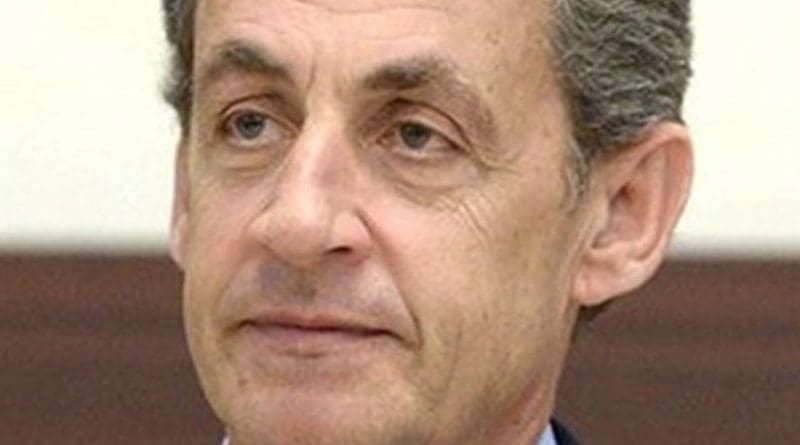Sarkozy Embraces German Calls For EU Treaty Change, Austerity
By EurActiv
French President Nicolas Sarkozy has embraced a German campaign for treaty change that could give European authorities intrusive powers to intervene in the national budgets of countries sharing the euro currency. The European Commission is due to present plans today (23 November) for greater fiscal surveillance in the eurozone.
France and Germany will soon propose amendments to the European Union treaty in response to the bloc’s sovereign debt crisis, Sarkozy said on Tuesday.
“With (Chancellor Angela) Merkel, we will soon make proposals on modifying the treaties to prevent countries from diverging in the budgetary, economic and fiscal areas,” he told an Asian forum in Paris.
“We will do everything not just to defend Europe but also to consolidate it.”
Treaty change in the EU is a fraught process. France has long defended its own national fiscal and economic sovereignty and its voters rejected a proposed EU constitution in a 2005 referendum.
But diplomats said Sarkozy has little alternative to going along with Merkel because France’s top-notch AAA credit rating is under threat and the risk premium investors demand to hold French debt rather than German bonds is rising.
After a day when the borrowing costs of most of the weaker eurozone economies continued to rise inexorably, the president of the European Council, Herman Van Rompuy, called for “crisis measures” – an apparent hint to the European Central Bank to take further action.
Sarkozy praised the ECB’s role in buying limited amounts of eurozone bonds to calm markets but refrained from calling for more decisive intervention, in contrast to his finance minister.
EU paymaster Germany continues to block the two most widely touted exit routes from a crisis that is shaking the world economy – massive ECB intervention to buy government bonds, or joint issuance of eurozone debt in the form of Eurobonds.
Influential ECB policymaker Jens Weidmann, head of Germany’s Bundesbank, spelled out his rejection of Eurobonds in a speech to employers in Berlin.
“(The ECB) would overstretch its mandate and call into question the legitimacy of its independence by accepting a role of lender of last resort for highly indebted member states,” Weidmann said.
Anyone who believed the crisis could be overcome by giving up stability-oriented principles, and by pushing aside existing legislation, was wrong, he said. “To do that would be like drinking sea water to kill thirst.”
Commission proposals for stricter budget discipline
Merkel called for much tougher rules to override national budget sovereignty if eurozone states fail to follow EU rules.
It was “not very appropriate” to discuss jointly issued eurozone bonds now, since mutual debt guarantees could come only at the end of a European integration process, if at all, she said.
Merkel has insisted the only answer to the bond markets rout is for states to embrace austerity measures and structural reforms to make their economies more competitive.
The European Commission is due to launch a public consultation on Eurobonds on Wednesday (23 November) that will also include plans to strengthen fiscal discipline in the currency area.
Echoing Merkel’s call for stricter fiscal discipline, Economic and Monetary Affairs Commissioner Olli Rehn said the EU executive would seek more intrusive powers to make sure national budgets in the eurozone do not break agreed rules.
The Commission will call for balanced budget rules to be inscribed into national law, preferably the constitution. It will also propose that budget planning be done on the basis of forecasts by national fiscal councils independent of government.
Rehn said a proposal from the German government’s panel of independent economic advisers for a eurozone debt redemption fund that would mutualise the bloc’s debt stock on stringent conditions was worth further study.
Merkel has questioned the legality of the idea and said it would be “impossible to implement in reality.”
In a sign that a grand bargain could be taking place between Paris and Berlin, French Finance Minister François Baroin said EU treaties currently did not allow the ECB to become a lender of last resort.


The treaty changes need begin a.s.a.p.
so that this problem does not happen again.